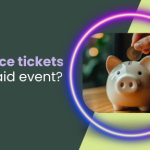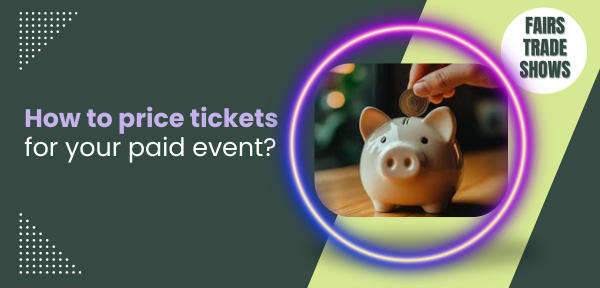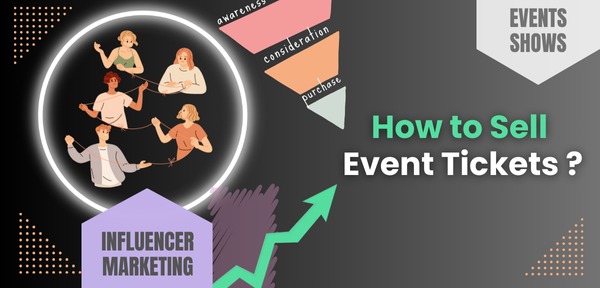Pricing tickets for an event is not just about slapping a number on them and hoping for the best. It is about strategy, psychology, and understanding your audience. Whether you are hosting a concert, a workshop, or a niche conference, the right pricing can make or break your event. Here is how to nail it.
Step 1: Know Your Costs (Every Single One of Them)
Before you even think about pricing your tickets, you need to tally up every single cost involved in your event. This is non-negotiable. Underestimating your expenses is the fastest way to end up in the red. Here is how you can make sure you have covered everything:
- Venue Costs: This is usually one of your biggest expenses. Account for the rental fee, deposit, and any extra charges for setup, teardown, or cleaning. If the venue requires you to use their vendors for catering or AV, add that to the list too.
- Staffing: Think beyond your immediate team. Will you need security personnel, ushers, or ticket scanners? What about the tech crew handling lighting and sound? Each person is a line item in your budget.
- Event Supplies: Do you need tables, chairs, decor, signage, or printing materials? Even small things like accreditation, name badges & lanyards add up.
- Marketing and Promotions: Do not forget the cost of advertising your event. This includes social media ads, email marketing software, flyers, and even influencer partnerships.
- Extras and Buffers: Something always goes wrong—an unexpected repair, a last-minute hire, or even a sudden price increase for materials. Build a contingency buffer (typically 10-20% of your total costs) to save yourself from scrambling later.
Once you have all your costs laid out, sum them up to calculate your break-even point. This number is your starting baseline for pricing tickets.
Step 2: Understand Your Audience (Get Inside Their Heads)
Knowing your audience is crucial for setting a price they will happily pay. Start by asking yourself: Who are you catering to, and what do they value?
- Define Your Target Demographic: Are your attendees students, corporate professionals, or high-income individuals? Each group has different spending habits and expectations. Students may prioritize affordability, while professionals may be willing to pay more for networking opportunities or professional growth.
- Assess Their Willingness to Pay: Take a hard look at the value you are offering. If your event is packed with well-known speakers, interactive sessions, or luxury experiences, people will likely pay more. On the other hand, if your event offers minimal extras, you may need to stick with a more conservative pricing strategy.
- Survey Your Potential Attendees: Do not guess—ask. Send out surveys or polls to get feedback on how much people would expect to pay for your event. This real-world data will guide your pricing decisions.
Here is the trick: Segment your audience and tailor ticket options to fit their needs. This means offering multiple ticket types, like early bird discounts, general admission, and VIP packages. Each type caters to a different type of buyer, increasing your chances of selling out.
Step 3: Check Out the Competition (Benchmark Like a Pro)
If you are hosting an event in a competitive niche or area, you need to know what your competitors are doing. But instead of just peeking at their ticket prices, analyze their entire value proposition.
Look at similar events. Research events in your category (music festivals, workshops, conferences, etc.). Note their ticket prices, what is included in each tier, and how those events are perceived by their audience.
Identify gaps in their offerings. What can you do differently? For instance, if your competitors offer VIP tickets but fail to include tangible perks like exclusive access or premium seating, you can outshine them with a better package.
Position yourself strategically. Use your research to determine whether you want to price your tickets slightly lower, match their price, or go higher because you are offering more value.
The goal here is not to blindly copy your competitors but to understand where your event fits in the market. Pricing your tickets too low can make your event seem cheap or unworthy, while pricing them too high can scare off attendees. Find the sweet spot based on what others are doing and what makes your event stand out.
Step 4: Add Value, Not Just Cost
If you are charging a premium price, you need to give people a reason to pay it. No one wants to fork out $200 for a ticket and get nothing but a fold-up chair and a lukewarm sandwich. So, make your event feel like a steal—no matter the price point.
Here are some ways to stack the value:
Exclusive Access: Offer backstage passes, meet-and-greets, or VIP-only sessions. People love feeling special, and exclusivity sells.
Freebies and Perks: Think about giveaways like branded swag, complimentary drinks, or discounts for future events. These do not have to cost much but can make your ticket prices feel justified.
Networking Opportunities: If you are hosting a professional event, create structured networking sessions or access to industry leaders. The chance to connect with the right people can justify a higher price.
When you offer tangible benefits at each ticket level, attendees feel like they are getting their money’s worth—whether they paid $50 or $500.
Step 5: Test and Tweak (Be Ready to Adapt)
No matter how much planning you do, pricing is not a one-and-done process. You need to test your strategy and be flexible enough to adjust.
Pre-Sell tickets. Open up a limited batch of early bird tickets at a discounted rate. This not only creates buzz but also helps you gauge demand and get a sense of whether your pricing feels right.
Pay attention to which ticket tiers are selling the fastest. Are people ignoring your VIP packages? Are general admission tickets selling out too quickly, suggesting they are underpriced? Use this data to refine your strategy.
If your ticket sales are lagging, try offering a short-term discount or bonus perk. This can help boost interest without devaluing your overall pricing.
The key here is to stay responsive. If something is not working, adjust your approach.
Bonus Tip: Do Not Forget Fees
If you are using a ticketing platform, remember that they take a percentage of your sales or charge flat fees per ticket. These costs can eat into your profits if you do not account for them upfront.
When you price your tickets, factor in these additional charges so that your revenue is not compromised. For example, if you want to take home $50 per ticket and the platform charges a $3 fee, your ticket price should be $53.
Pricing Tickets is About Balance
Pricing tickets is not just a math problem; it is a strategy. It is about balancing your costs, audience expectations, and perceived value to create a win-win situation. If you follow these steps, you will not just cover your expenses—you will create a pricing strategy that drives demand and makes your event profitable.
Remember: Test, adapt, and always aim to over deliver on value. When your audience feels like they are getting more than they paid for, your event will be a success.





